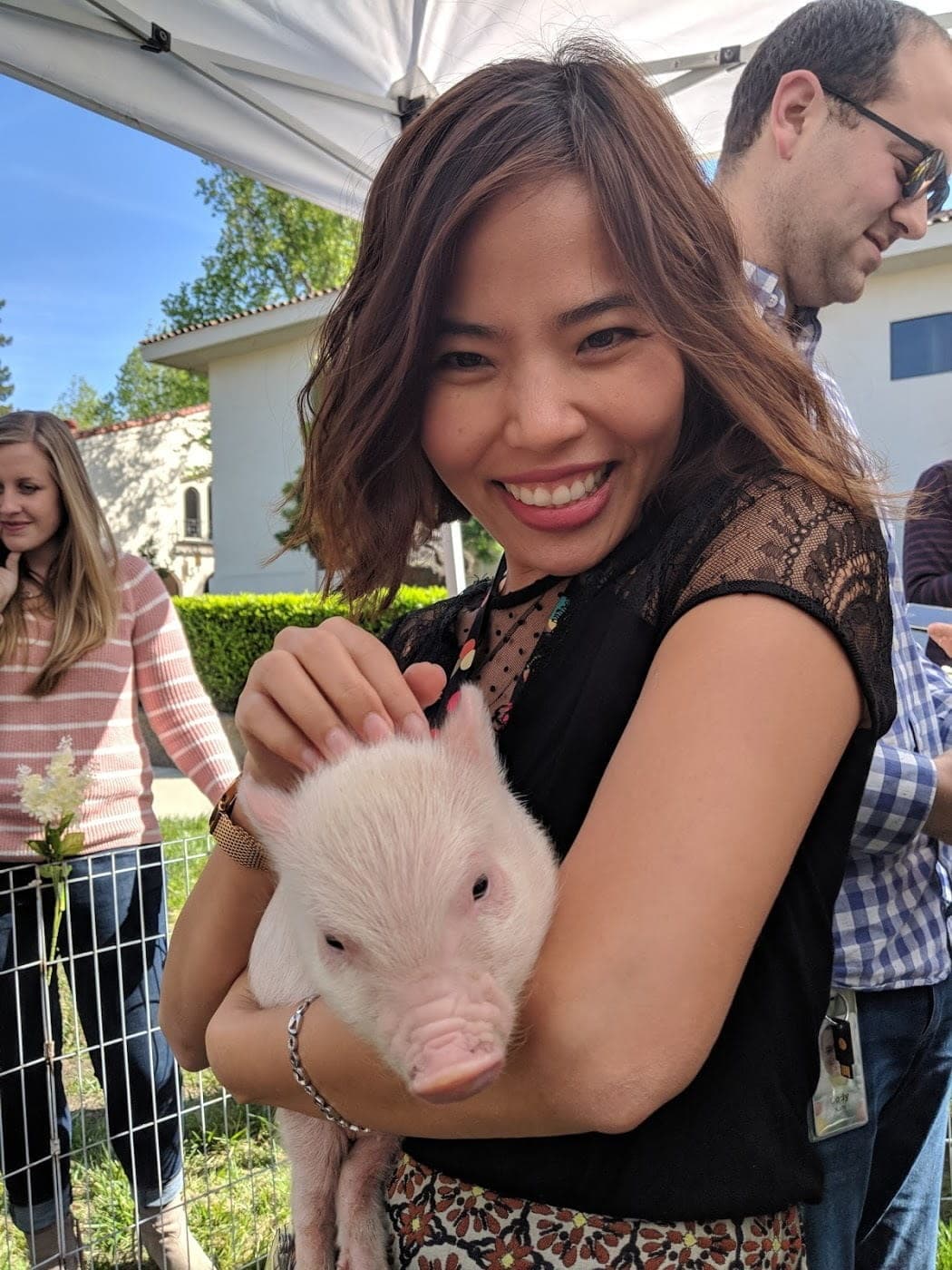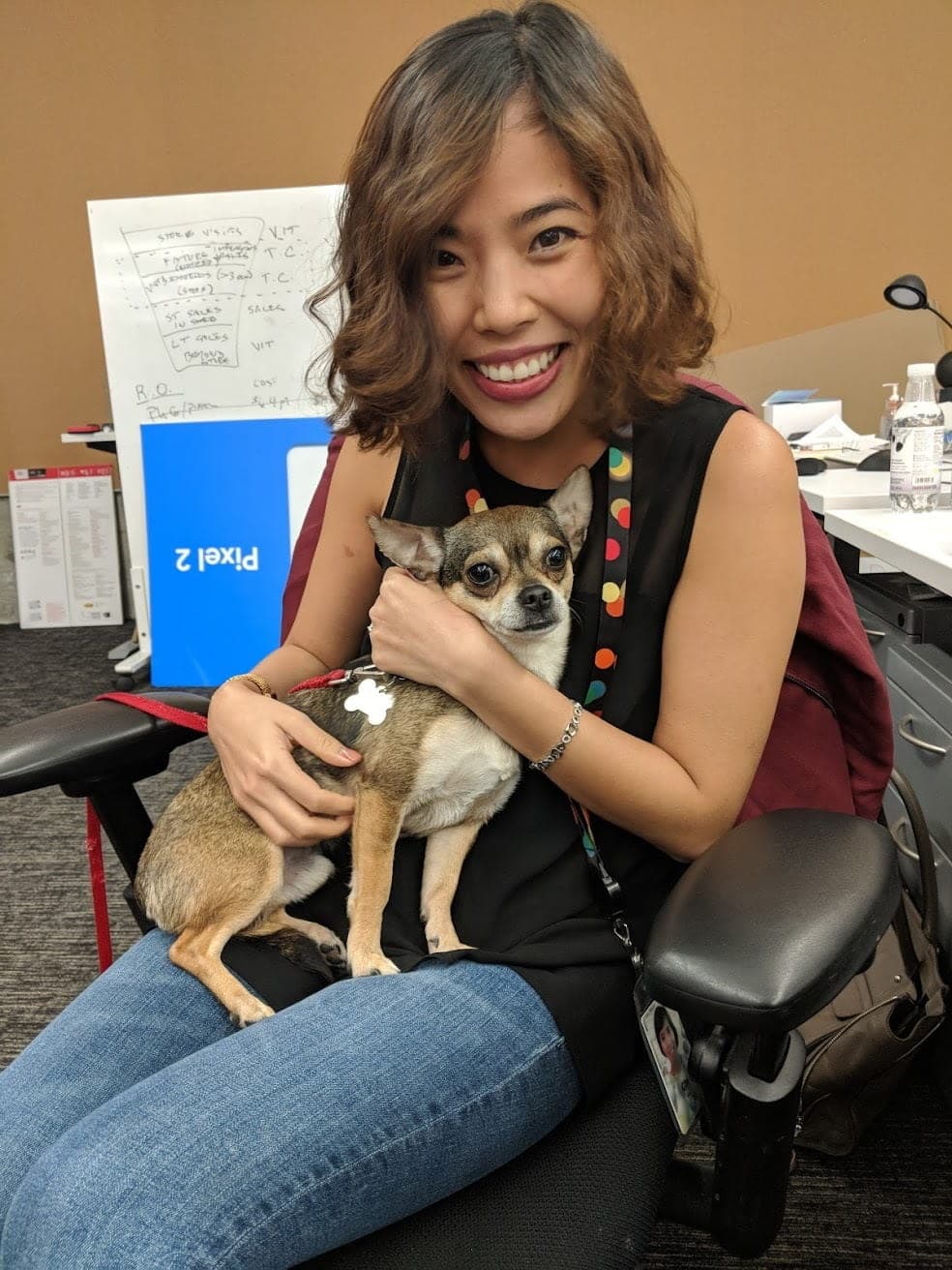
When Chi received a call about a job at Google, she was ecstatic but hesitant. She didn't get the last two roles she applied for, was she 'smart enough'?
For every job, Google receives thousands of applications. The recruiter assured Chi that it was the stiff competition and not her lack of qualifications that made her fail to get through previously. She decided to give it another chance – and got the job.
Google is famous for their rigorous interviewing process. Chi went through 21 interviews and three job applications before landing a role at the Internet’s most renowned organisation.
“I don’t think anyone can be prepared for Google interviews. They ask you the most random questions, questions that you would never think to prepare for,” said Chi.
“You have to be very buttoned up around your thinking otherwise you will be destroyed,” she laughed.
However, Chi is no stranger to rigorous tests. After graduating from RMIT University’s Bachelor of Commerce programme in Hanoi, she was picked for Unilever’s Management Trainee program which recruits the top students in countries to represent in all over the world. She described the selection process as “a dragon’s den”, which consisted of an aptitude test, five rounds of interviews and group work, each round is observed and monitored by a panel of 3 – 5 senior leaders.
 Chi Vu
Chi Vu
“I remember each time I got through one round of interviews, and the next one round of exams, I was thinking – there’s no way, this is too hard! But somehow I made it through and I got into the program.”
“It wasn’t just about doing an amazing job, [Unilever] grooms you to become an amazing leader, via the design of the program and the nurture of all the leaders in the company,” she said.
When Chi moved to Google’s Asia headquarters in Singapore, she was already well trained to do great things as a senior account manager.
“The growth of the markets and digital advertising was great and to be at the centre of it all, understanding how things move and how you can shape that for the Vietnam market was incredible,” she said.
Her thirst to go beyond the familiar market of Vietnam pushed Chi into her current role as hardware retail marketing lead for the Asia Pacific region (APAC), where she works with markets in the region.
“I still remember at the start, wondering why I keep challenging myself because I’m already so comfortable,” she said.
“One year in and there are still moments of self-doubt, but I am really enjoying it and grateful for the opportunities that I’ve got.”
In order to handle her demanding work life, Chi likes to be very organised to combat the daily grind.
“I think I have a little bit of OCD so I always start out with understanding exactly what I have to accomplish during the day before I can actually function,” she said. “So it’s usually a cup of coffee, going through emails and making sure that my to-do list is to the T.”
 Chi Vu
Chi Vu
Her typical day starts at 7:30 am with meetings with the global team at Mountain View, California and is peppered with meetings with the cross-functional and marketing teams around the region.
Having an imposter syndrome is common among the employees. However, this works to their advantage, as it pushes them to constantly work harder and think outside the box.
“You are surrounded by so many smart people, basically you just double your learning curve,” she said. “It’s incredible how much you learn every day at work, even just over a cup of coffee.”
Besides the people, Chi’s favorite thing about Google is their culture. The company maintains a casual culture that encourages mobility and flexibility. There are plenty of opportunities for employees to grow their careers in different sectors, given the variety of products.
“Today I’m in hardware marketing for APAC but if tomorrow I want to move to Mountain View (where Google’s corporate headquarters are), or if I want to move to India in the same team within the hardware organisation, it’s actually very encouraged,” she said.
“It’s because [Google] really believes in knowledge transfer and unique thinking and bringing a different colour and diversity into every team.”
Within the office, it is not unusual to send a Google Hangout message to someone you don’t know personally just to have a coffee together to learn more about what they do and talk about potential collaborations.
“99% of the time, that person will say yes. Everyone is so in tune with the culture, to help and work with each other,” said Chi.
So how does Google identify the best people for their company? Apart from your knowledge and skills, they look out for an individual’s “Googliness” – your compatibility with the organisation’s culture.
“Are you curious? Are you willing to learn? Are you open and excited to help people? Are you user focused? At Google, it’s user first and you must “not be evil” .”
Lastly, perseverance is key. Like Chi, you just have to keep trying – even if it means going through 21 interviews. Growing a career in one of the world’s most progressive companies may be challenging, but ultimately rewarding.
“Getting into tech companies like Google and Facebook can be really hard, but if it’s something you see for yourself you just have to keep going for it. Don’t think that you’re not good enough – you just need to keep trying.”
 Chi Vu
Chi Vu
Acknowledgement of Country
RMIT University acknowledges the people of the Woi wurrung and Boon wurrung language groups of the eastern Kulin Nation on whose unceded lands we conduct the business of the University. RMIT University respectfully acknowledges their Ancestors and Elders, past and present. RMIT also acknowledges the Traditional Custodians and their Ancestors of the lands and waters across Australia where we conduct our business - Artwork 'Luwaytini' by Mark Cleaver, Palawa.
Acknowledgement of Country
RMIT University acknowledges the people of the Woi wurrung and Boon wurrung language groups of the eastern Kulin Nation on whose unceded lands we conduct the business of the University. RMIT University respectfully acknowledges their Ancestors and Elders, past and present. RMIT also acknowledges the Traditional Custodians and their Ancestors of the lands and waters across Australia where we conduct our business.